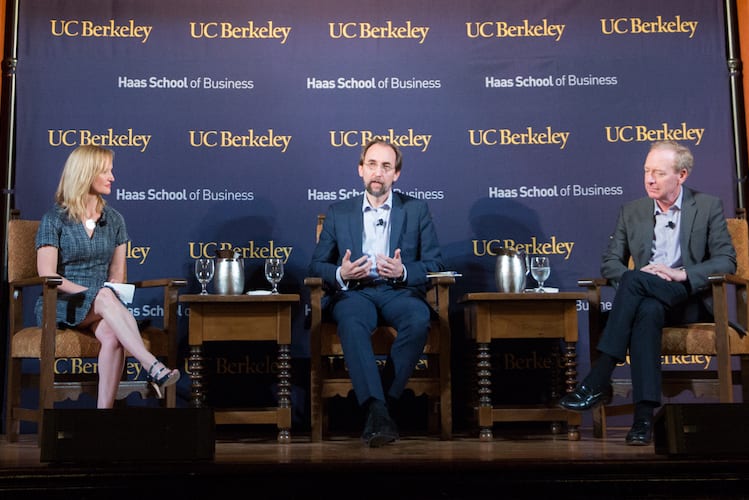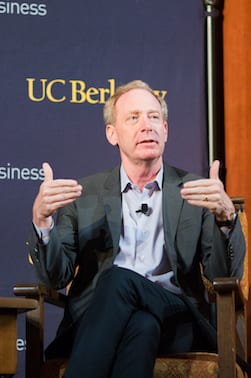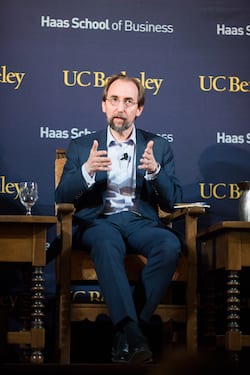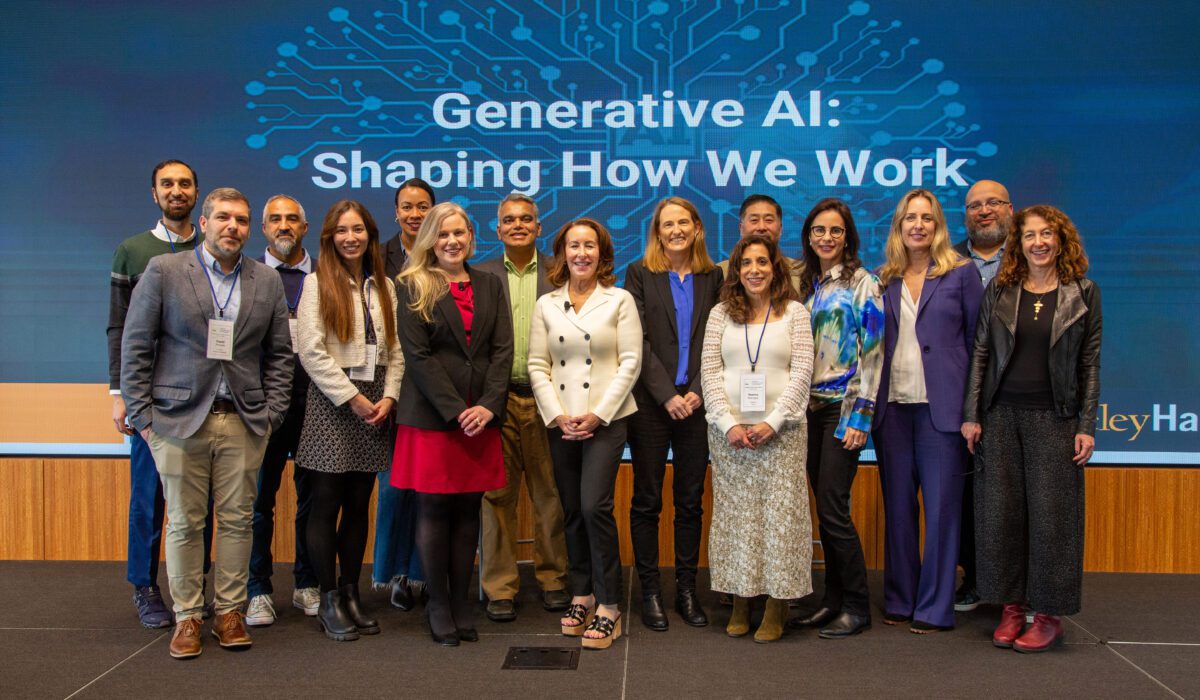
More than 250 business leaders and academic researchers gathered at Berkeley Haas from Jan. 9-10 for the sold-out Culture Connect Conference, sharing challenges and insights on creating high-performing, inclusive cultures in the age of generative AI and hybrid work.
The sixth annual conference, organized by the Berkeley Haas Center for Workplace Culture and Innovation (BCC), featured talks by top leaders from IBM, Lyft, Pixar, LinkedIn, Hubspot, and other leading companies, along with hands-on workshops and discussions. It was led by the center’s Co-Founding Directors Jennifer Chatman and Sameer Srivastava, and organized by Program Director Audrey Jones.
Chatman, the Paul J. Cortese Distinguished Professor of Management at Haas, said she was struck by the stories leaders shared of trying, failing, and trying again as they have experimented in real time with AI and hybrid work.
“My biggest takeaway is that an experimental mindset is critical as organizations approach these very significant changes that everyone is facing today,” Chatman said. “Organizations are going through seismic shifts in how they are thinking about and conducting work. The conference was fascinating because leaders shared their stories—the good and the bad—as they navigate these changes.”
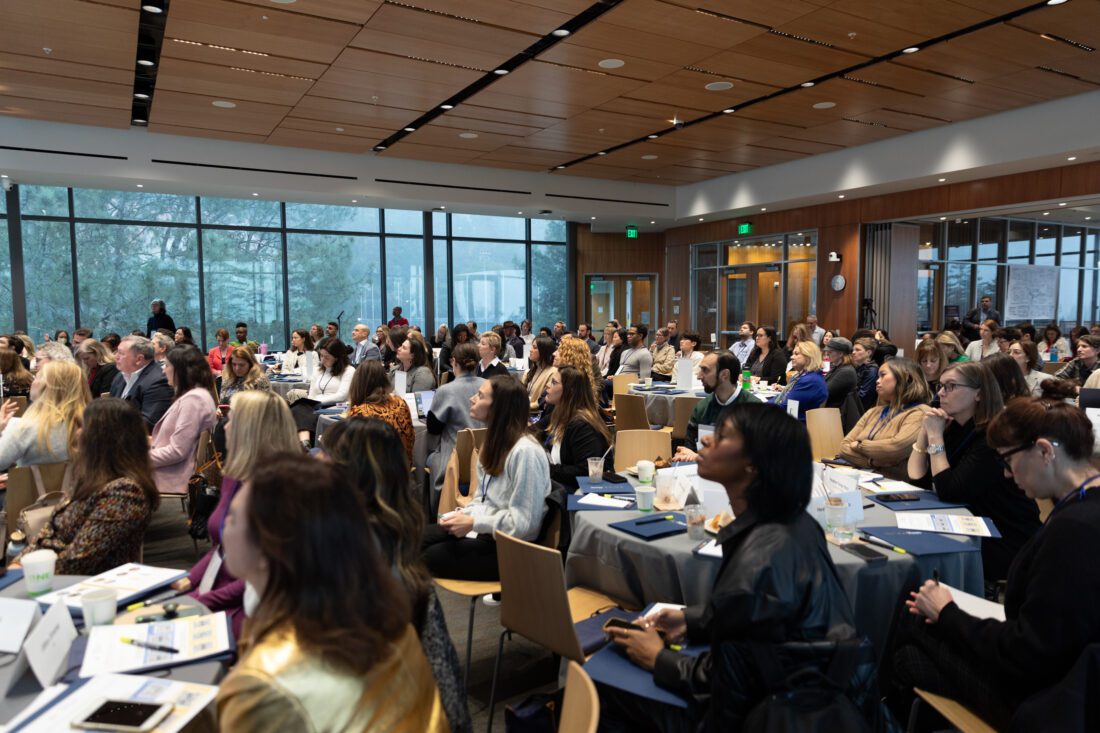
This was the first year the conference was open to the broader public beyond invited presenters and BCC partners. Attendees included about 100 academics and 150 industry leaders from a diverse range of industries, including health care, biopharmaceuticals, media, tech, financial services, film, government, and nonprofits. Seventy companies represented.
“The combination of research-backed evidence from academics and practical advice from seasoned industry leaders is difficult to bring together but when it happens, it yields a level of insight that could not be achieved by either perspective alone,” added Srivastava, the Ewald T. Grether Professor of Business Administration and Public Policy. “We’re immensely grateful to every speaker, workshop leader, facilitator, and participant who contributed to making this a meaningful event of learning and connecting.”
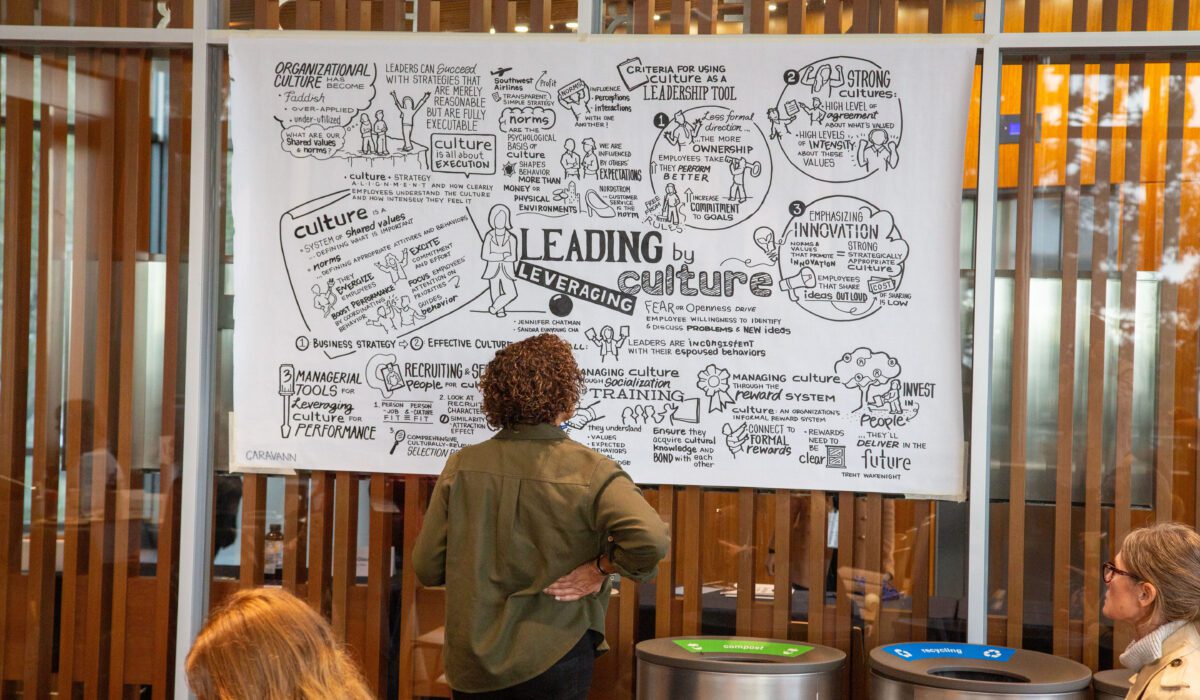
Day 1: Diverse perspectives on organizational culture academic research
The first day of the conference emphasized research, with presentations from 34 scholars from around the world who examine culture through the lens of sociology, social psychology, and economics. Keynote talks included Paul Ingram of Columbia on how people tend to conceal social class identities; Doug Guilbeault of Berkeley Haas on how gender biases tend to be stronger and more persistent in online images than in text; Anita Williams Woolley of Carnegie Mellon on how the drivers of collective intelligence in teams differ from individual intelligence; and Leo Bursztyn of the University of Chicago on how to create social change by correcting misperceptions about prevailing norms.
Former Haas Dean Rich Lyons, Associate Vice Chancellor and Chief Innovation & Entrepreneurship Officer at UC Berkeley, and Laura Hassner, executive director at UC Berkeley Innovation & Entrepreneurship, reported on the success of the UC Berkeley Changemaker program, a campus-wide certificate program including about 30 courses addressing critical thinking, communication, and collaboration—and enrolling about 20% of undergraduates.
Doctoral student Yingjian Liang of Indiana University Bloomington won the Edgar Schein Best Student Paper Prize. Second place went to Danyang Li of Berkeley Haas.
Day 2: Deep dives into three key themes
Future of work and hybrid workspaces
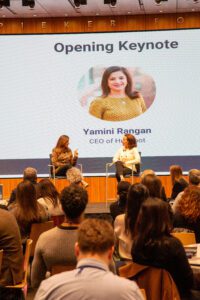
The second day of the conference was attended by about 200 industry leaders and academics. HubSpot CEO Yamini Rangan, MBA 03 (left), sat down with Chatman (right) for a fireside chat. Rangan said companies should treat culture as a product that management consistently refine. “You have to evolve your culture every day, every week, like a product,” Rangan said. She also emphasized the importance of building a team of leaders, rather than building a leadership team to make culture inclusive. “Culture is how people behave when leadership is absent,” she said.
Nicholas Bloom, an economics professor at Stanford, shared data on how firms are adapting to remote and hybrid work across different sectors of the economy. Bloom noted that the effect of remote work on productivity has been neutral, while the impact on productivity has been typically positive. “Organized hybrid has won,” he said.
Kristen Sverchek, president of Lyft, detailed the company’s journey with hybrid work, and Martine Haas, a management professor at the Wharton School, offered a framework for thinking about a firm’s hybrid culture.
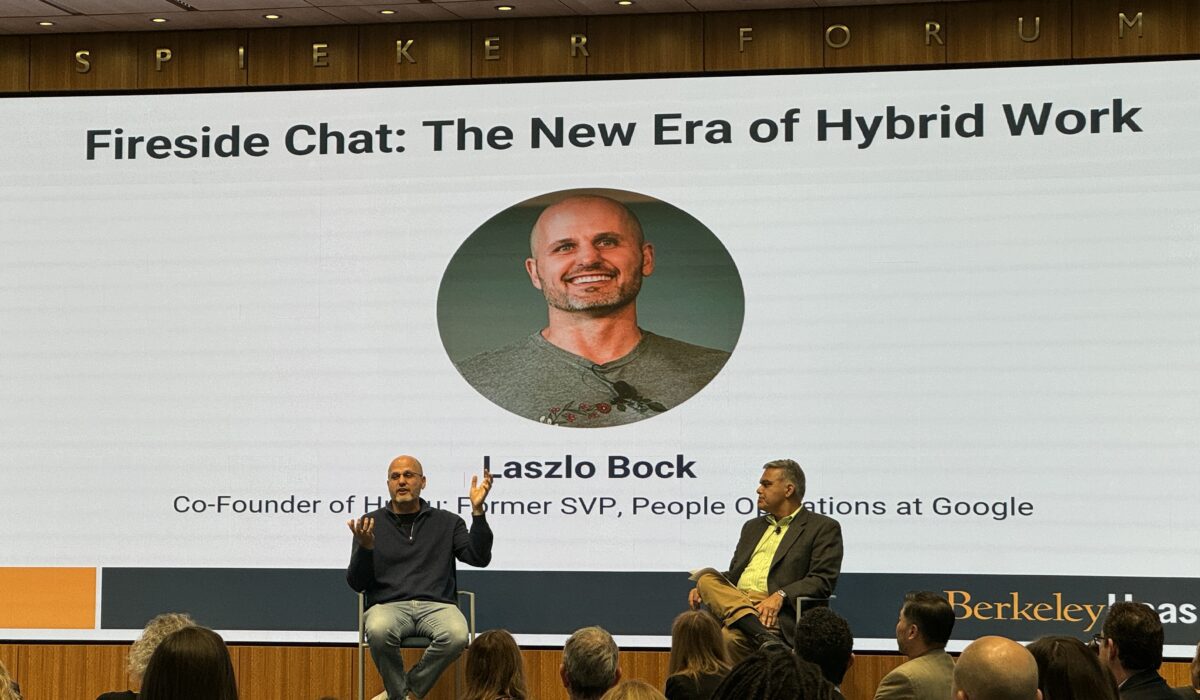
In a fireside chat with Srivastava (above right), Laszlo Bock, CEO and co-founder of Humu & Gretel.ai (above left), discussed how to help employees find meaning and connection while using hybrid work models. Bock, who formerly worked in People Operations at Google, shared an impactful exercise used at Google: Find three or four interesting stories about people within the company, and brief execs on these stories again and again so that they retell the stories. These stories aren’t PR, he said—they will resonate to help give a sense of a strong, cohesive culture.
DEIB focus
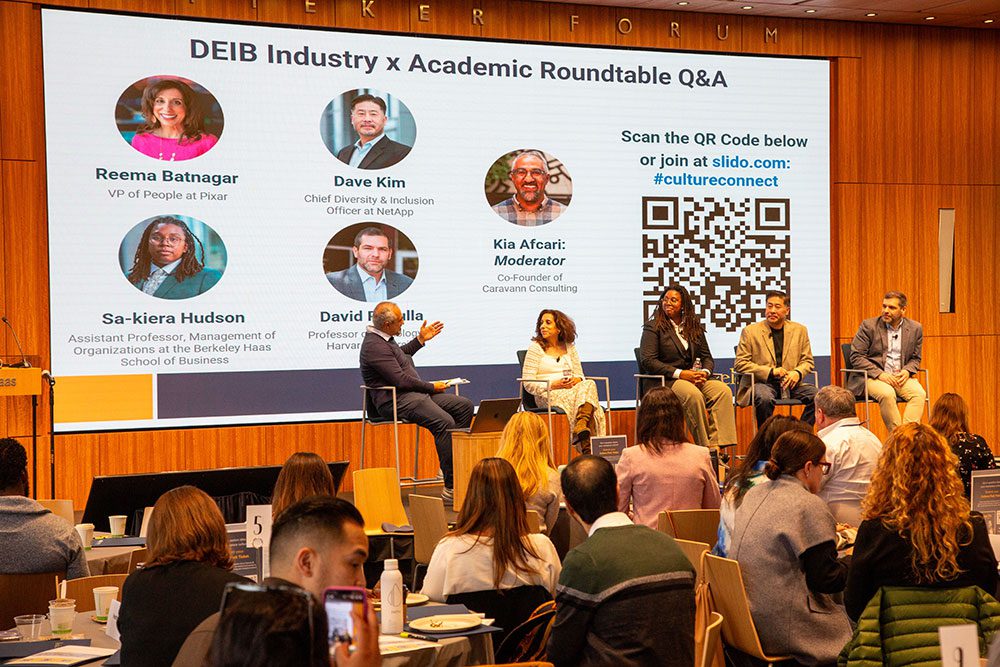
Shifting focus, Co-founder, Coach, and Consultant Kia Afcari (above left) moderated a roundtable on diversity, equity, inclusion, and belonging.
During the discussion, Reema Batnagar, vice president of people at Pixar (2nd from left), emphasized the importance of using personal stories as a way to foster inclusion and belonging at work. David W. Kim, chief DEI officer at NetApp (2nd from right), discussed why corporate leaders must maintain the momentum of their DEI efforts despite recent pushbacks. David Pedulla, a sociology professor at Harvard (right), highlighted the extent to which various forms of discrimination still persist in the labor market.
Sa-kiera Hudson, an assistant professor at Haas (middle), shared recent research findings that emphasize the importance of understanding intersectionality, specifically how gender and race can work together to amplify or dampen various forms of bias. Hudson emphasized that people are complex and we should never assume that their experience within a group is aligned with their perceived identity.
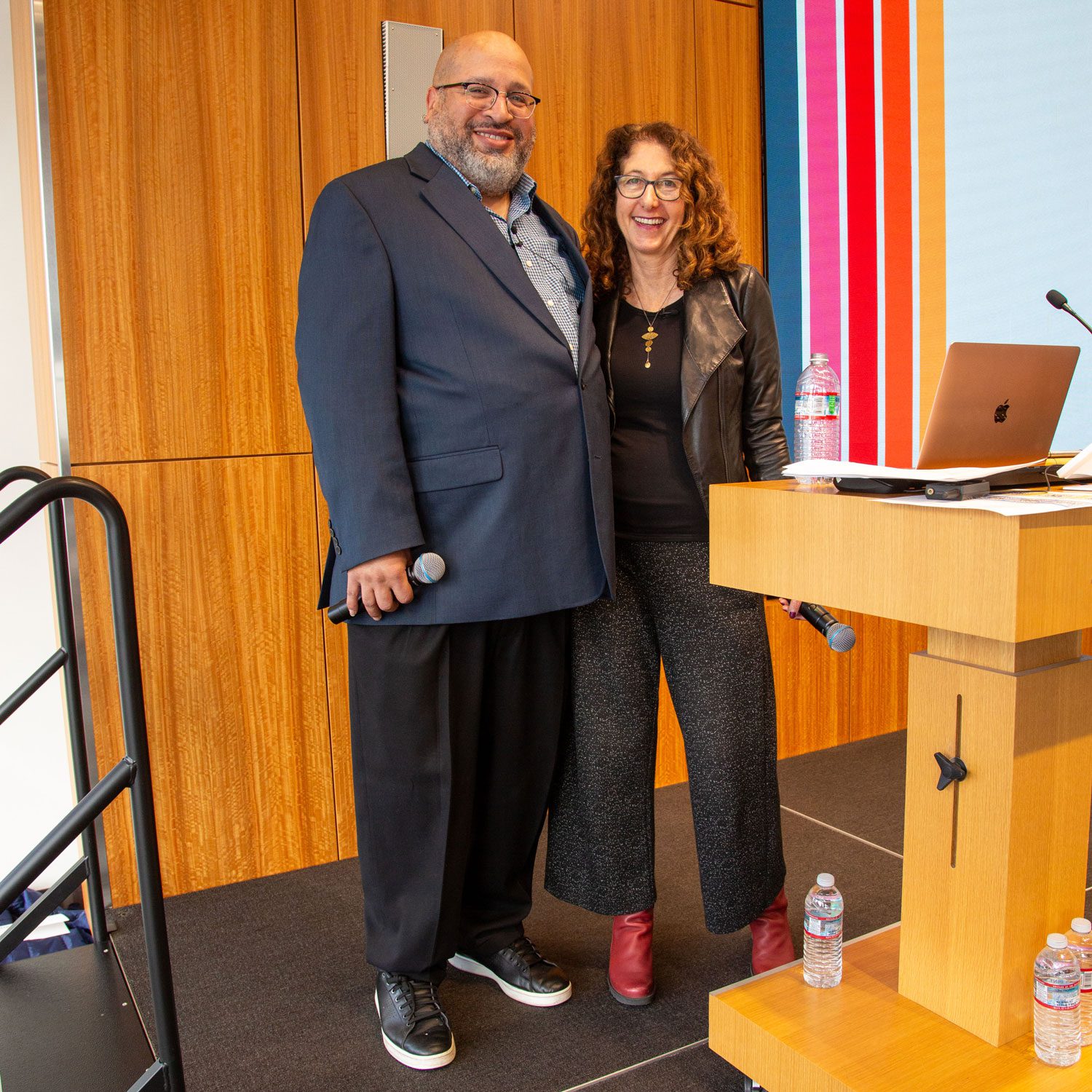
CreativityPartners Chief Associate Chris Bell (above left) and Co-founder and CEO Jamie Woolf (above right) led a workshop on how to create a sense of belonging through mutual storytelling.
Generative AI’s transformative role
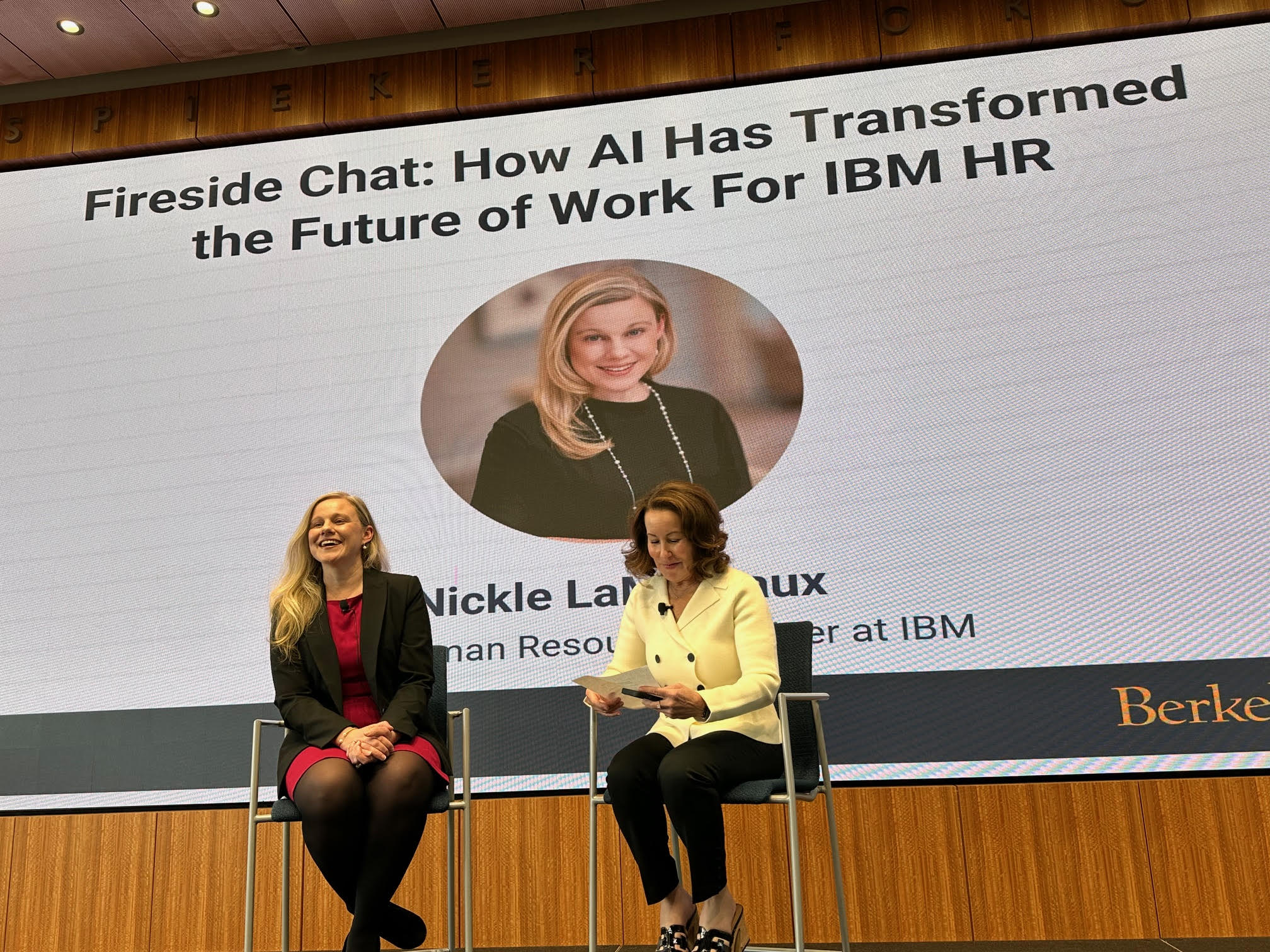
In a fireside chat with Chatman (above right), Nickle LaMoreaux, chief human resources officer at IBM (above left), described how she and her colleagues have been harnessing AI to transform the role of HR in the organization.
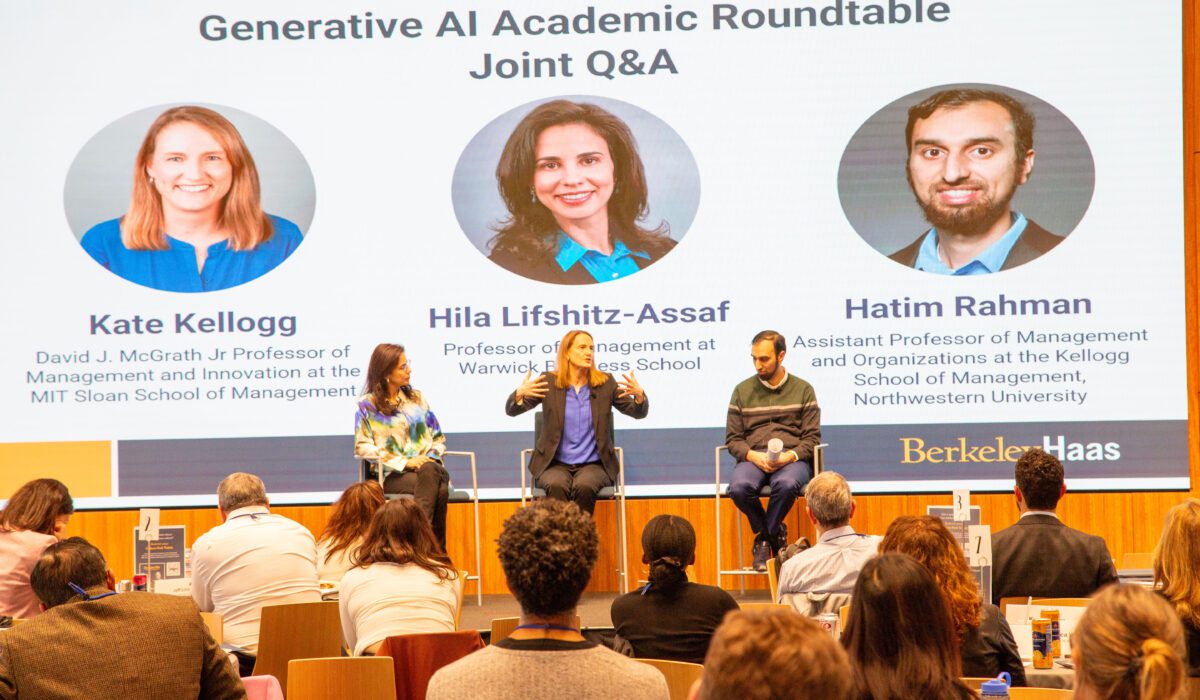
MIT Professor Kate Kellogg (above middle) and Warwick Business School Professor Hila Lifschitz-Assaf (aboove left) discussed a generative AI field experiment conducted at Boston Consulting Group. Hatim Rahman (above right), an assistant professor at the Kellogg School of Management, shared research on the importance of technological certification in the labor market.
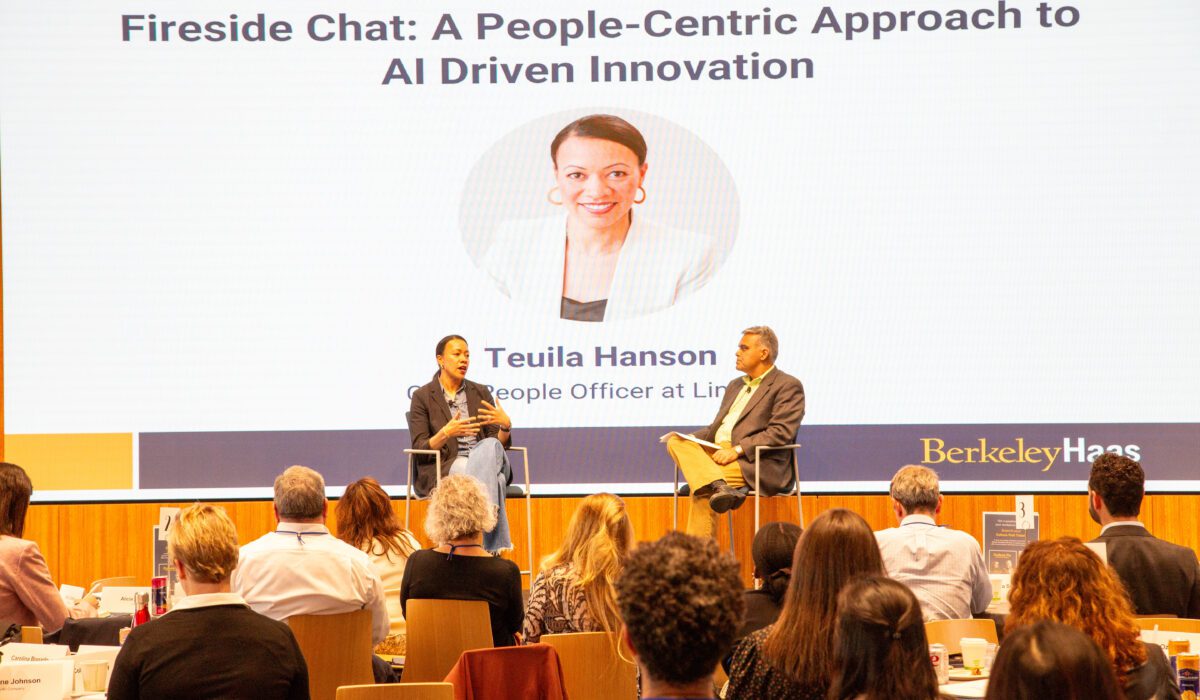
Teuila Hanson (above left), chief people officer at LinkedIn, emphasized the need to take a people-centric approach when adopting AI tools and technologies, since human skills—including human intuition that AIs lack—are critical. “The future of work is still human,” she said.
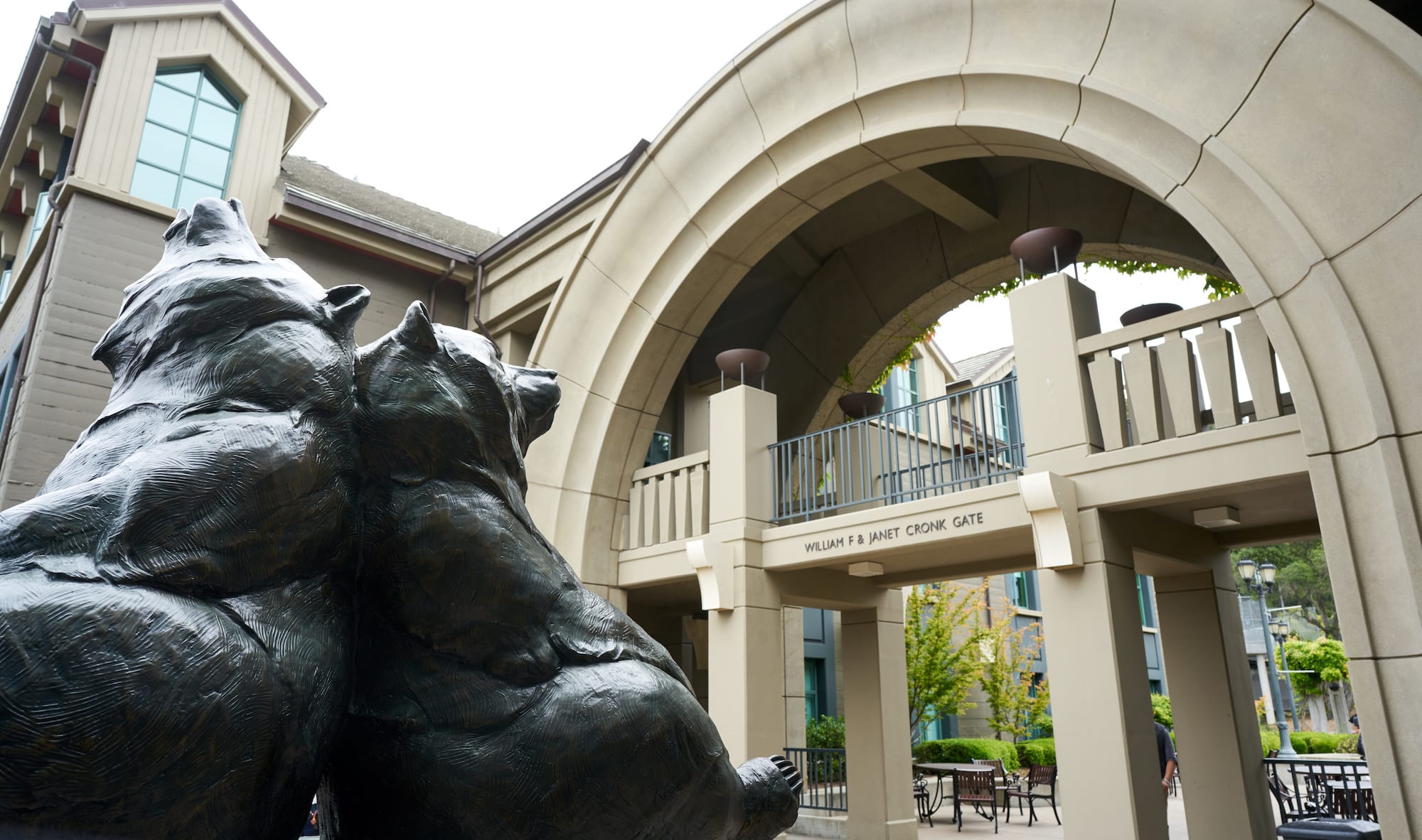
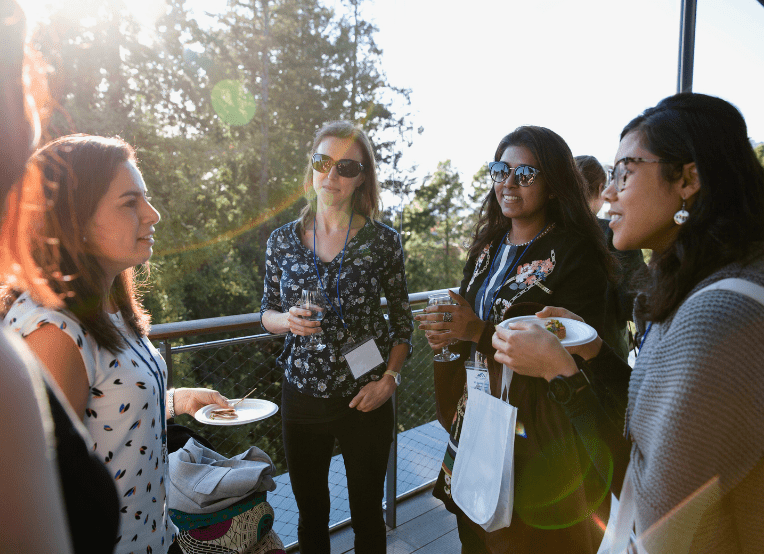


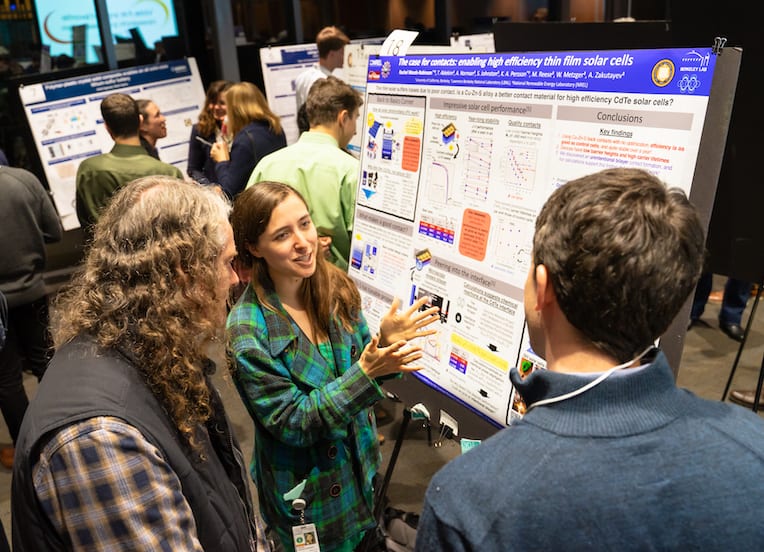
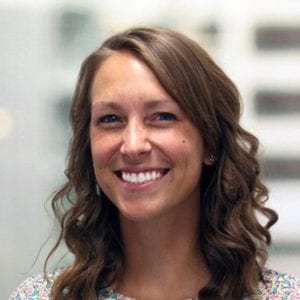
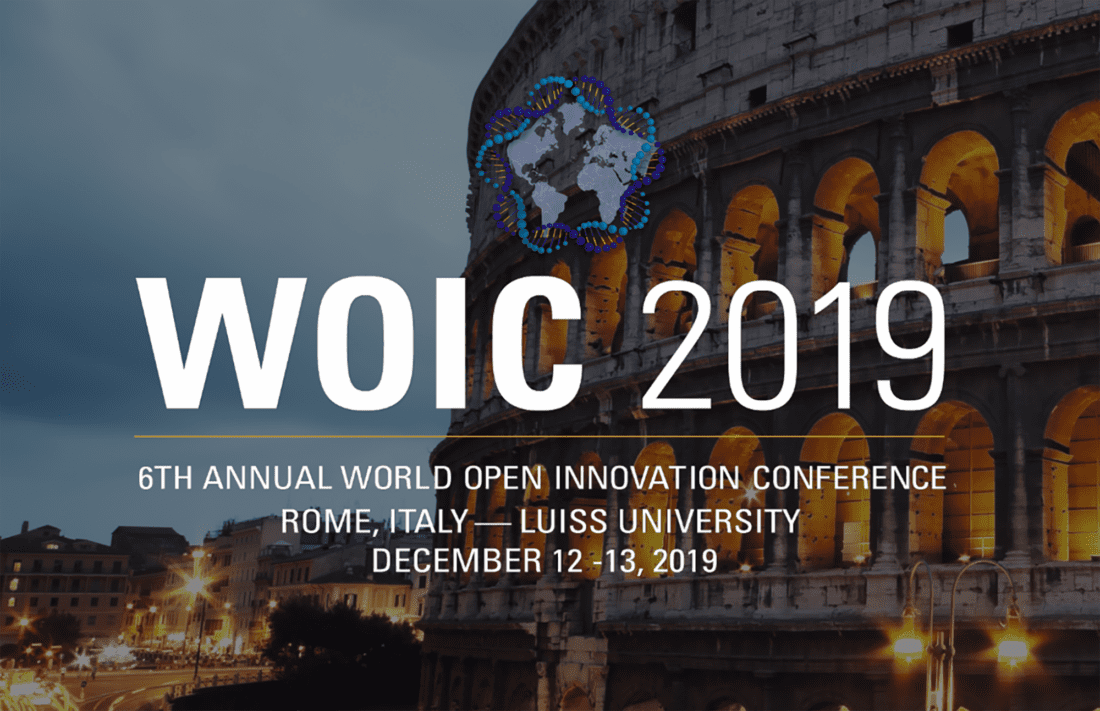 How societal challenges can provide organizations with unexpected growth opportunities will be the theme as innovation leaders gather for the sixth annual
How societal challenges can provide organizations with unexpected growth opportunities will be the theme as innovation leaders gather for the sixth annual 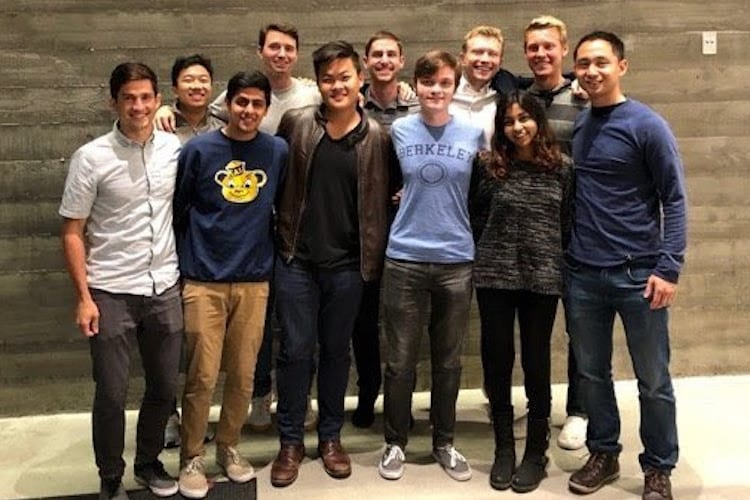
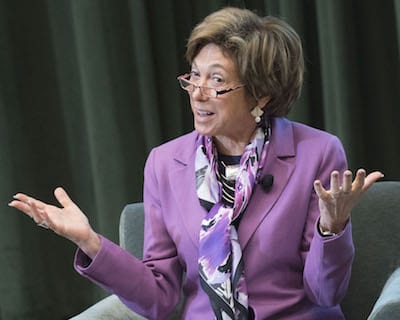
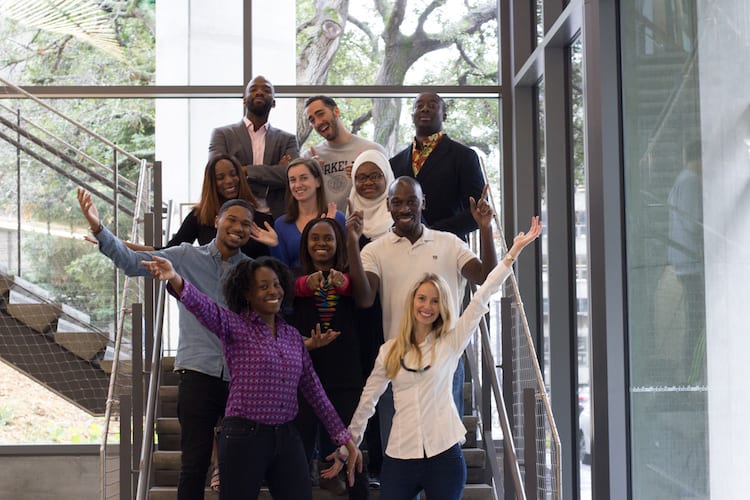 Before last year’s Berkeley Haas Africa Business Forum, Ekene Anene, MBA 18, landed a coveted summer internship at fintech startup Branch.co in Lagos, Nigeria. At the conference, she met the company’s CEO, who spoke on a fintech panel.
Before last year’s Berkeley Haas Africa Business Forum, Ekene Anene, MBA 18, landed a coveted summer internship at fintech startup Branch.co in Lagos, Nigeria. At the conference, she met the company’s CEO, who spoke on a fintech panel.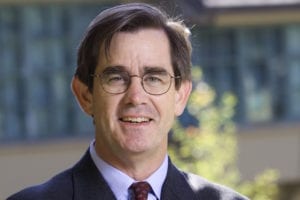 Since Adj. Prof. Henry Chesbrough wrote his pioneering 2003 book, Open Innovation: The New Imperative for Creating and Profiting from Technology, the concept has become a mainstay of corporate strategists and product developers around the world.
Since Adj. Prof. Henry Chesbrough wrote his pioneering 2003 book, Open Innovation: The New Imperative for Creating and Profiting from Technology, the concept has become a mainstay of corporate strategists and product developers around the world.